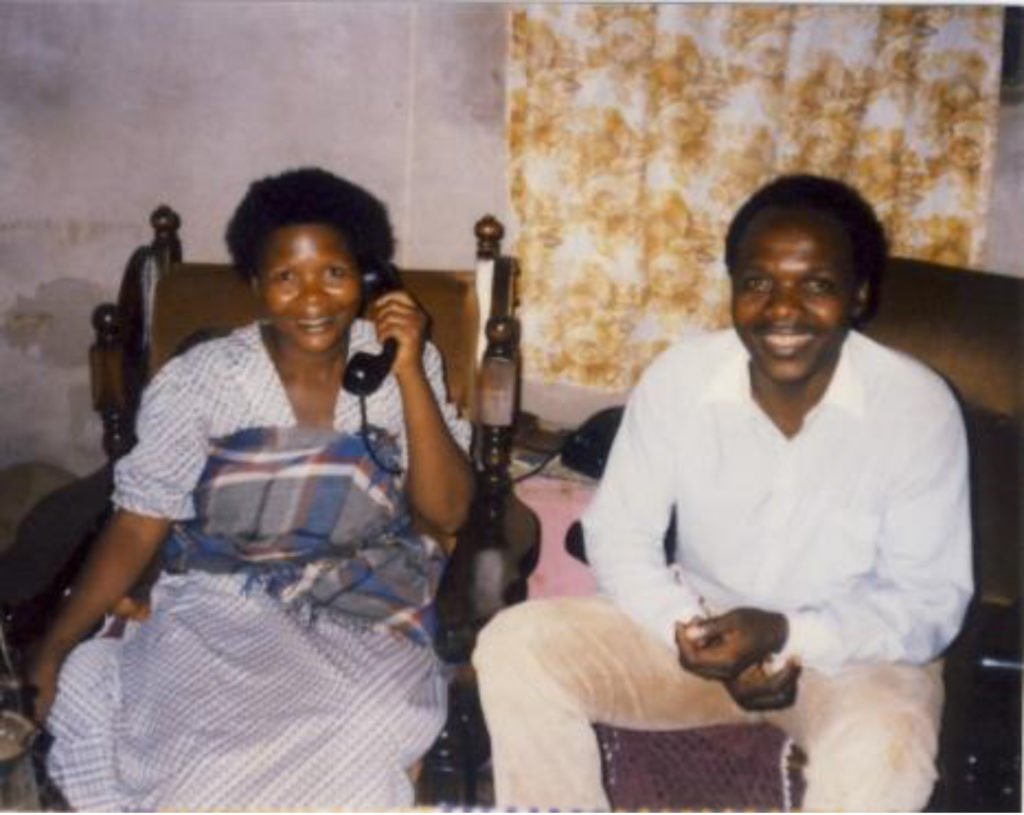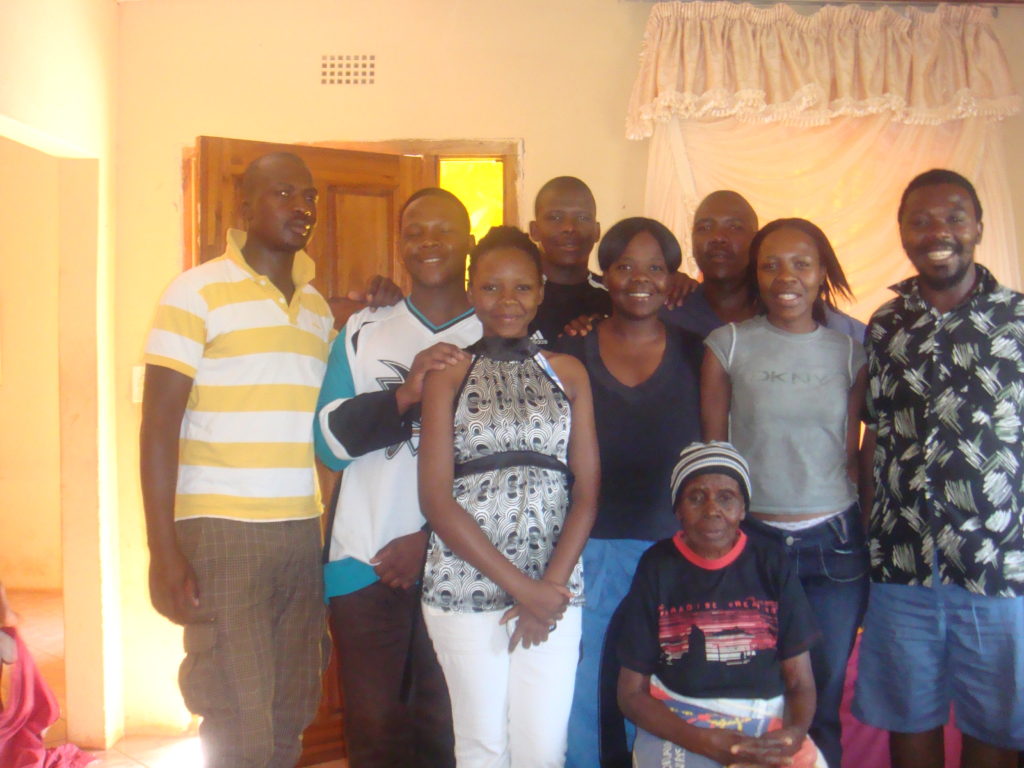
Benedict believed that marriage was a relationship between equals, a true partnership of life and love between husband and wife. For him this was not just a theory to be believed, but a reality to be lived in daily life. He was keenly aware of the domestic demands on his wife. He used to say that, “men should not expect all kinds of services from their wives when they were already busy with family chores”. He was never ashamed to help his wife by taking on tasks which were seen as women’s work.
His daughter, Helen, witnessed this as she was growing up, “He carried the laundry to the nearest river where he went to wash it himself. He would go to fetch and carry water for the rest of the family”. His friend, Chris Mphaphuli, confirms this, “You would see Benedict washing the nappies of his babies. This is not something you would see in this area. Men have their tasks and women have theirs. But for Benedict there was none of that”.
Benedict taught his children to follow his example as we learn from his son, Lufuno, “He would get us to go to the veld to collect wood for my mother on a Saturday morning”. He said this task was, “unthinkable for a man during those times”. Towards his children he was always kind and approachable. In the words of Lufuno, “We could go to him. He was friendly. He was everything you could ask for in a father”. He wasn’t afraid to show his affection for his children. Lufuno recalls the last time he spoke to his father only a week before his death, “I remember my last conversation with my father. I was going into the second year of secondary school. He drove me to St. Brendan’s and we chatted for a long time. We prayed and then we hugged. Then he closed the door and I closed my door and he drove off”.
Similar sentiments are expressed by his daughter, Helen, “What a great and loving Dad you are! A well-spoken man led by faith. A well-respected and respectful man to the people. A very humble man”.
Benedict was also concerned about keeping the extended Daswa family together. Every year during Christmas time he would gather all the close relatives including the children. They would eat together, share family news and strengthen the bonds of kinship and mutual support. Benedict would ensure that the children were at the heart of the celebration and each one would receive a little Christmas present. According to his sister, Thinavhuyo, “the elderly would also be given some presents on these days as well as food and drink”. This annual coming together would rotate among the different families.
Benedict’s concern for the welfare and happiness of families extended to the wider community. Thinavhuyo tells us that, “He used to visit people in their homes and he would tell them something good from the Bible so that they could live in peace. He didn’t like to see quarrels between husbands and wives. He would sometimes be called if there were family problems. Before going he would call us together in the dining room and ask us to pray with him before he went to the family with the problems. Sometimes he would tell us to fast before attempting to solve problems”.

Benedict had a deep spiritual life nourished by prayer and the regular reception of the sacraments. For him the family was truly a domestic Church where the faith was lived and passed on to the next generation. He strongly encouraged all parents to pray with their children, to talk to them about Jesus and Mary and the saints and to teach them the catechism. His daughter Helen recalls the practice in their home, “He used to teach us how to say the Rosary, read the Bible and the Order of the Mass. He taught us to respect our religion and to take part in Church youth activities such as the choir, meetings, Sunday school and conferences. Every evening we used to have family prayer”. Benedict’s sister-in-law, Alice Daswa, recalls, “What I saw of the relationship between the parents and their children was exemplary. They were trained not to eat before praying, and to pray after meals, to pray before they went to bed and when they woke up. If any child did something wrong they would discipline that child”.
The catechist, Joseph Netshikulwe, experienced the practice of prayer in the Daswa home, “I remember visiting Benedict once and staying the night with the family. Before going to bed, the family came together in prayer. He read the Bible, there was singing, then we recited the Act of Contrition, the Our Father, the Hail Mary, prayers known by heart and Prayers of the Faithful”. Benedict and Eveline passed on the faith to their children as their responsibility. They didn’t just leave it to the Church or to the grandparents to do so.

For Benedict, Christianity was much more than praying at home and attending Mass on Sundays which he saw as very important. As Hellen remembers, “He was very strict and expected us to be in Church”. For Benedict his faith was a whole way of life. He lived it deeply in his private and family life. He also lived it publicly, but in a humble manner, as a teacher and as a leader in the Church and in society.